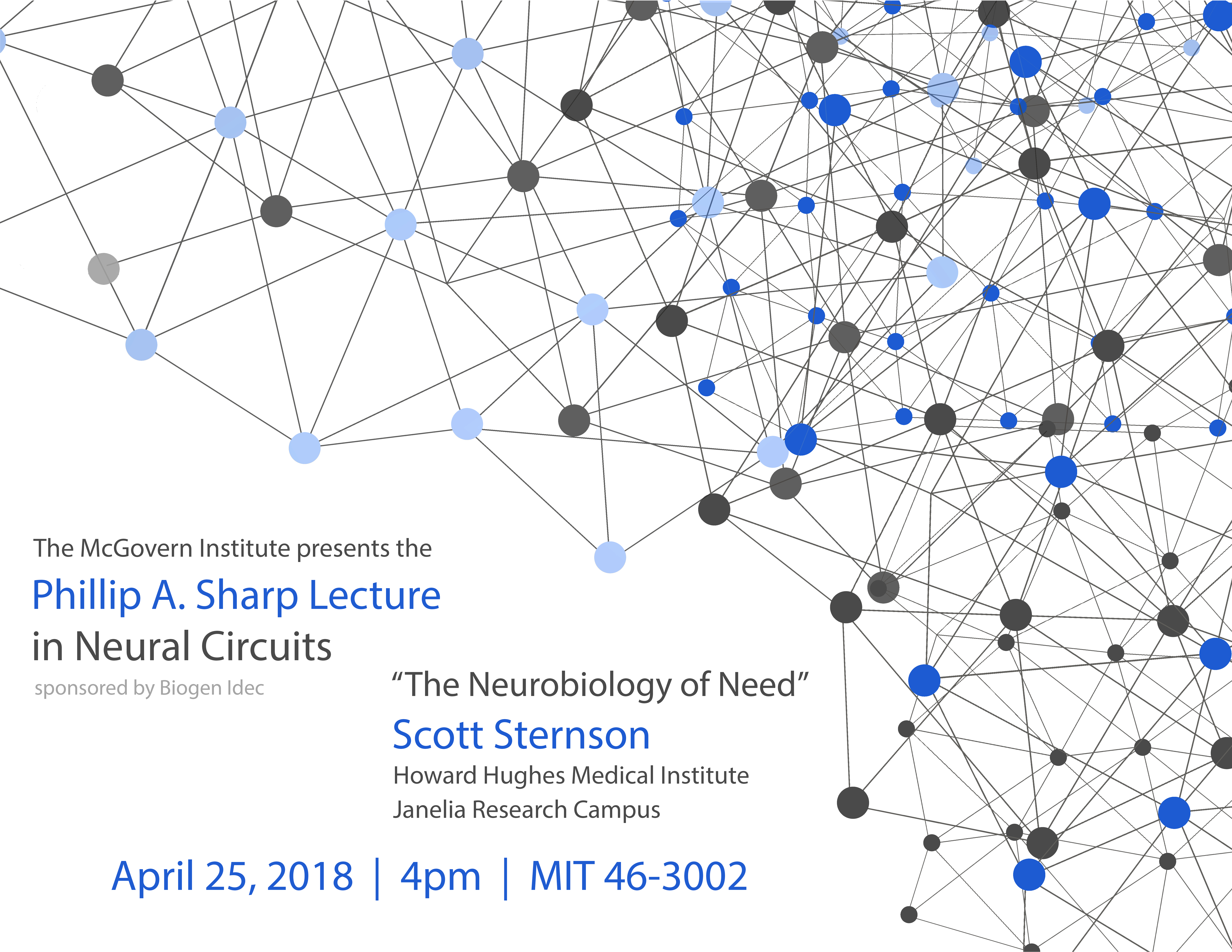
Phil A. Sharp Lecture in Neural Circuits
Description
My lab is interested in how the physiological needs of the body interact with the brain to control complex, flexible behaviors. To understand these motivational outputs of the brain, we are identifying the underlying neuronal components with molecular specificity in order to derive general principles for how the brain mediates behavioral states essential for survival (i.e., needs). My lab’s research is split between development of new chemistry-based molecular tools and neurobiological investigation of complex behavioral states required for survival, such as hunger and thirst. By pursuing molecularly defined approaches to neurobiology, we were the first to identify neurons responsible for the unpleasantness of hunger, which is related to the long-term ineffectiveness of weight-loss diets. To investigate the circuits that mediate hunger, we are developing a powerful new imaging platform for behaving mice to record high dimensional neuronal dynamics in virtually any brain region that can be directly linked to molecular information for each of the cell types. To do this, we perform two photon in vivo calcium imaging in deep brain structures followed by ex vivo multiplexed FISH on the same neurons to assign molecular identity. Finally, to control circuits, we have created ultrapotent chemogenetic tools based on joint chemical and genetic on engineering of ion channels that are optimized for research as well as translation into potential clinical therapies. Together, our findings have important explanatory power for the difficulty of overweight individuals to maintain weight loss and provide a framework for systematically investigating the biological processes that lead to obesity, which currently affects 91 million Americans.

